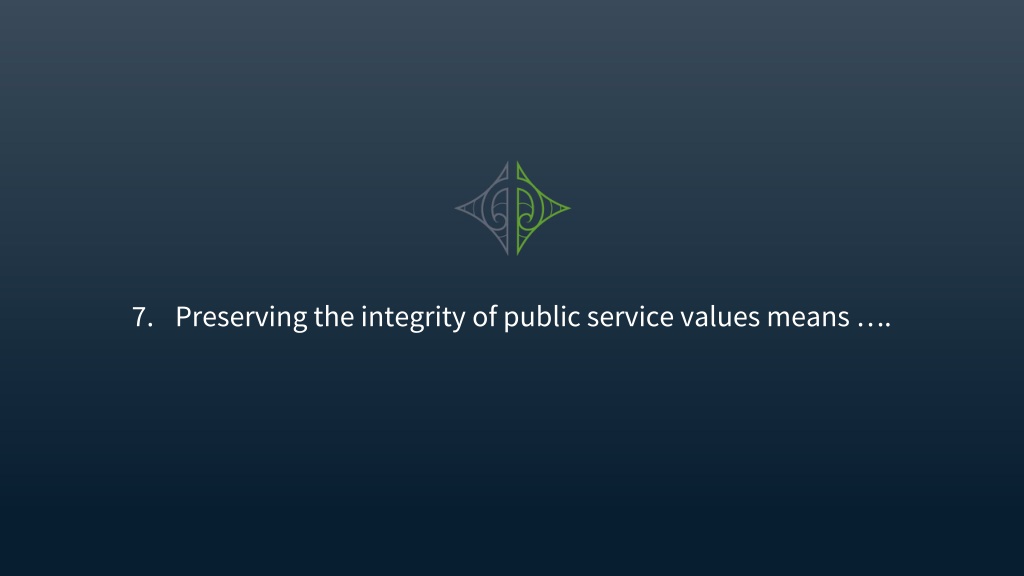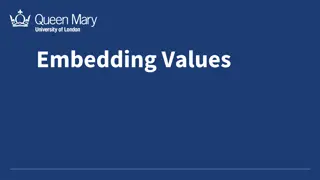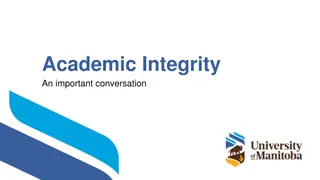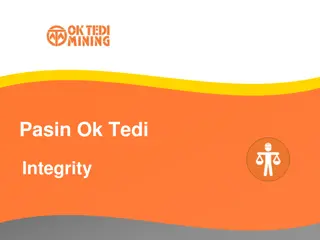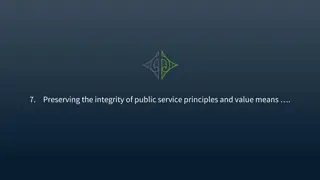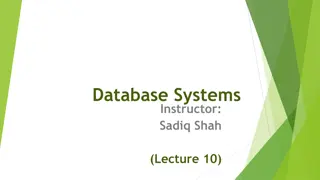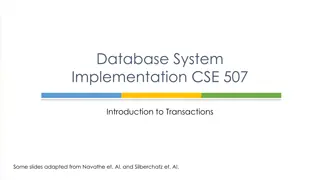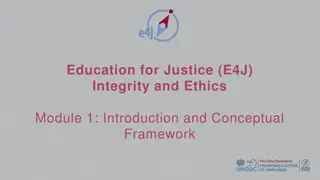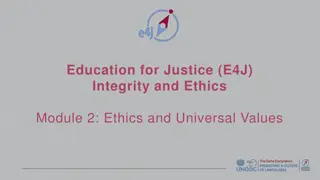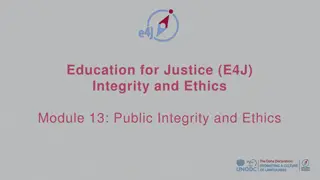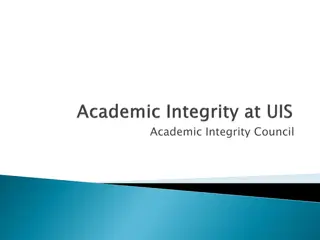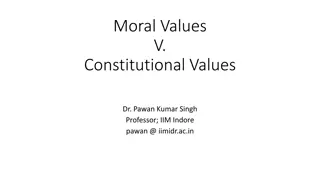Preserving Integrity of Public Service Values
Preserving the integrity of public service values entails actively considering conflicts of interest before and after appointment to public service roles. Proper disclosure of interests, proactive management of conflicts, and adherence to high standards of conduct are essential for board members and employees. The responsibility lies in understanding and adhering to the legal requirements and ethical guidelines outlined for public servants.
Download Presentation

Please find below an Image/Link to download the presentation.
The content on the website is provided AS IS for your information and personal use only. It may not be sold, licensed, or shared on other websites without obtaining consent from the author.If you encounter any issues during the download, it is possible that the publisher has removed the file from their server.
You are allowed to download the files provided on this website for personal or commercial use, subject to the condition that they are used lawfully. All files are the property of their respective owners.
The content on the website is provided AS IS for your information and personal use only. It may not be sold, licensed, or shared on other websites without obtaining consent from the author.
E N D
Presentation Transcript
7. Preserving the integrity of public service values means .
you will have actively considered conflicts of interest for accepting your appointment Before appointment, a prospective board member must disclose to the Minister the nature and extent of all interests that they have, or are likely to have, in matters relating to the entity. The responsible Minister is required to confirm, in the submission to APH, that this disclosure has been made. The nature of the interests to be disclosed are specified in legislation (see next slide). Note that before appointment as a board member, the person must (a)consentin writing to beinga member; and (b)certifythattheyare not disqualifiedfrombeinga member;and (c) disclose to the responsible Minister the nature and extent (including monetary value, if quantifiable)ofall interests.
following your appointment, you should continue to disclose interests Interests must be disclosed if you: may derive a financial benefit (including remuneration as an employee) are the spouse, de facto partner, child or parent of a person who may derive a financial benefit have a financial interest in a person to whom the matter relates are a partner, director, officer, board member, or trustee of a person who may have a financial interest in a person to whom the matter relates may be interested because of a provision in the entity s Act are otherwise directly or indirectly interested in the matter ( interests are not only financial).
and, if practicable, proactively manage any conflicts of interest that arise A board member of a statutory entity, who has an interest (as defined in legislation): must not vote or take part in any discussion or decision of the board relating to the matter or otherwise participate in any activity of the entity that relates to the matter must not sign any document relating to the matter must be disregarded for the purpose of forming a quorum for any part of a meeting of the board relating to the matter. Exceptions to these requirements may be made by the chair if they are satisfied it is in the public interest.
and having high standards of conduct for board members and for employees The Commissioner has issued a Code of Conduct for Crown Entity Board Members New board members should become familiar with their board s policy manual or charter; in particular, its standards of integrity and conduct setting out explicit expectations in relation to potential probity issues. Boards should satisfy themselves that their entity s own code of conduct and practices reflect the principles of the Standards of Integrity & Conduct for the State Services and related expectations (for example, on offers of gifts & hospitality), and should endorse their adoption for all entity employees.
Board Code of Conduct and Model Standards The Public Service Commissioner has issued: a Code of Conduct for Crown Entity Board Members which applies to the board members of statutory entities (excluding corporations sole) and Crown entity companies (excluding Crown Research Institutes and their subsidiaries) a Code of Conduct for the Directors of Public Finance Act 1989 Schedule 4A Companies. The Commissioner s Model Standards Model Standards set out the Commissioner s minimum expectations for agencies and staff in the public sector on specific integrity areas. These include: Positive and Safe Workplaces , Information Gathering and Public Trust, Speaking up, Conflicts of Interest, Chief Executive Gifts, Benefits and Expenses, and Workforce Assurance
During an election year . official Information Act requests should continue to be handled in a timely and appropriate manner public servants intending to stand for Parliament must inform their employer, and stand down from their positions by Nomination Day in the case of staff covered by the Electoral Act senior staff should exercise particular care in discussing their intentions agency premises and other resources should not be used for electioneering. See Commission guidance: He rahitanga P titanga Wh nui | General Election Guidance | Te Kawa Mataaho Public Service Commission.
